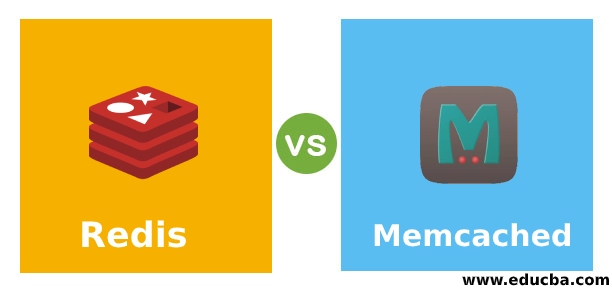Updated February 28, 2023
Difference Between Redis vs Memcached
The following article provides an outline on Redis vs Memcached. All Redis and Memcached are storage systems in memory. Memcached is a high-performance memory cache software distributed and Redis is a main value open source. Similar to Memcached, Redis saves most of the memory data. It supports operations of different types of data, hash tables, including strings, and linked lists. These two most common data storage systems are sponsored by the Alibaba Cloud ApsaraDB family: Redis ApsaraDB and Memcache ApsaraDB.
What is Redis?
The five primary data structures of Redis are opening up a whole new range of options. From these systems, the application developers will pick features such as caching data manipulation and intelligent caching. The mechanism for the eviction of data is used in this memory caching system to remove the old data to make room for the new information. On the other hand, Memcached’s memory recycling method is somewhat different.
What is Memcached?
Memcached is more beneficial when storing relatively small and static data. And so Memcached is easier if you work with HTML code fragments. The internal memory of this program uses the least amount of metadata memory, making it more powerful than its current one. Interior memory management is also efficient in the simplest of applications. Memcached can handle high-traffic websites well. With this program you can simultaneously read a lot of information and get a great response time. On the other hand, Redis is very busy using reading and handling strong scripts at the same time.
Head to Head Comparison Between Redis vs Memcached (Infographics)
Below are the top 10 differences between Redis vs Memcached:
Key Difference
Let us discuss some of the major key differences between Redis vs Memcached:
- Memcached has a higher rate of memory use for easy storing of key values.
- But if Redis takes the hash structure, thanks to its combined compression mode, it has a higher memory usage rate than Memcached.
- Redis uses only single nuclei while Memcached uses multiple nuclei. Redis, on average, has higher performance than Memcached when calculated as cores in small data storage.
- Redis exceeds Memcached for storing 100 K or higher data.
- Although Redis has made some improvements on Big Data storage, it is still less than Memcached.
- Redis supports user end data operations and has more data structures and supports richer than Memcached data operations.
- Typically, if you want identical changes to be made, you have to copy data to the client end and then reset the data. As a result, network IO counts and data size are increased considerably.
- These are used by many businesses and task-critical production environments, are supported and are a part of a multitude of packages for developers and are provided by client libraries in every programming language.
- All Redis and Memcached caching are simple to use and with minimal code, easy to integrate.
- Redis and Memcached both accept the sub-millisecond latency / response time. The data can be read faster than the disk-based databases as the data is stored in memory.
- Although Redis supports data persistence, the Memcached framework is a full memory data buffer.
- Memcached follows the distributed mode and is accomplished on the customer side by distributed storage
Redis vs Mamcached Comparison Table
Let’s discuss the top comparison between Redis vs Memcached:
|
Redis |
Memcached |
| Redis is a database, cache and message broker in-memory data structure server. | Memcached is a key value store for in-memory purposes original for caching. |
| Following redis Key Value Store database template. | Following Memcached Key Value Store database template. |
| In 2009 Redis was released. | In 2003 was released |
| Redis is BSD window linux Operating System. | Memcached is FreeBSD Window unix and linux. |
| It’s so much easier to install Redis. No addictions required. | Installing and running is a bit complicated. |
| Even after you use Redis hashes, Redis will become more efficient in memory. | Memcached is more effective in memory than Redis because of the relatively smaller use of metadata memory resources. |
| Redis is just like a memory store. It runs a value / key pair from your database to return the output set. Instead of accessing the database, Memcached stores variables in its memory and recover some data from the server memory. | |
| Neither high traffic read nor heavy writings can be handled by Redis. | Memcached is very useful for websites with high traffic. It can read a lot of information at once and give you a great answer. |
| The main duration of Redis has no more than 2 GB. | The main length of Memcached is 250 bytes maximum. |
| It is slow as compared to Memcached. | Memcached is faster than Redis. |
Recommended Articles
This is a guide to Redis vs Memcached. Here we discuss the Redis vs Memchached key differences with infographics and comparison table. You may also have a look at the following articles to learn more –




